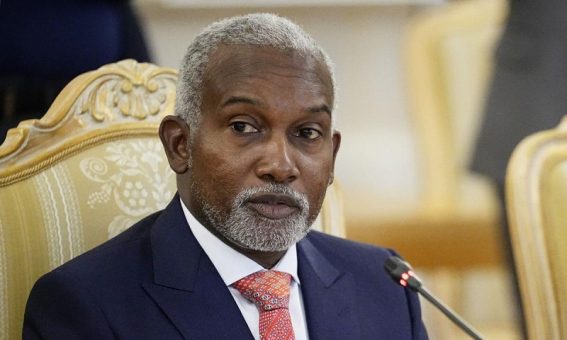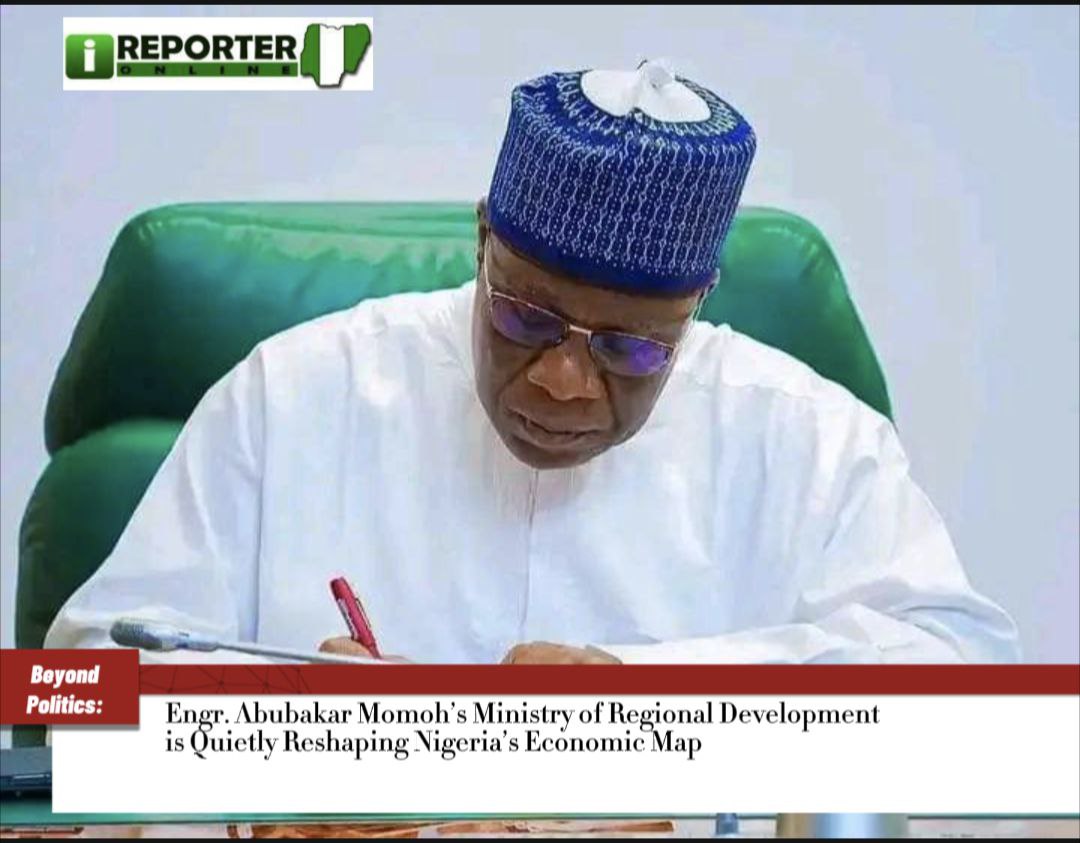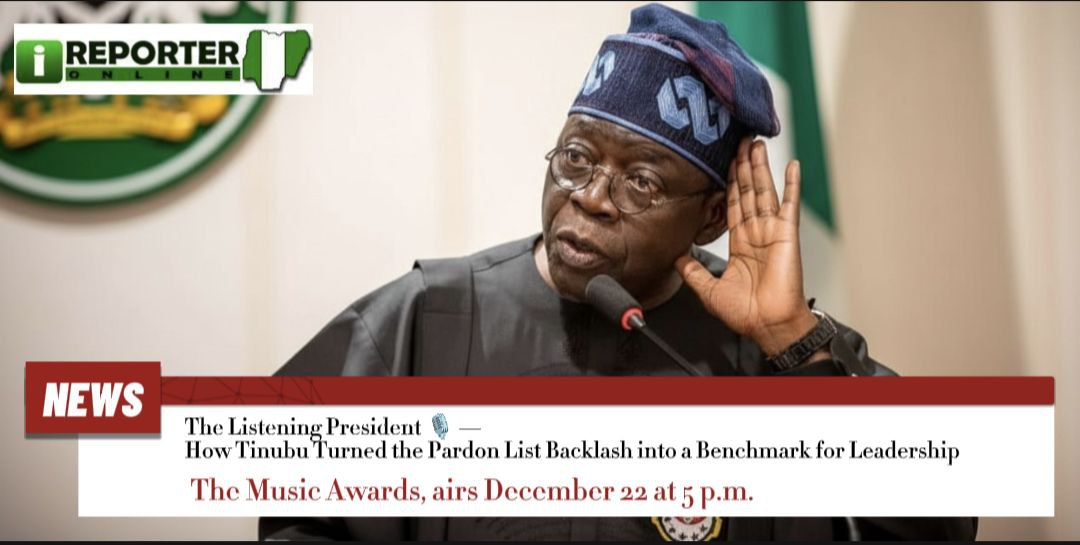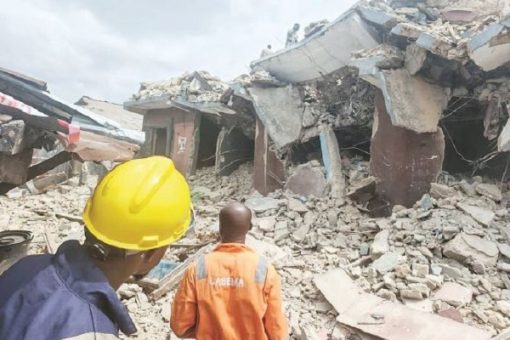latest
Nigeria Reaffirms Strategic Ties With EU, Eyes Stronger Regional Partnership.

Abuja, October 27, 2025 – Nigeria has reaffirmed its commitment to deepening its longstanding strategic partnership with the European Union (EU), emphasizing the bloc’s role as the country’s largest trading partner and a critical ally in regional peace, development, and integration.....KINDLY READ THE FULL STORY HERE▶
Minister of Foreign Affairs, Ambassador Yusuf Tuggar, made the remarks while hosting a six-member delegation from the European Parliament’s Committee on Foreign Affairs at the Ministry of Foreign Affairs, Tafawa Balewa House, Abuja. The visiting parliamentarians, representing five countries and three political groups, were in Nigeria on a working visit to strengthen bilateral relations and gain insight into developments in West Africa.
Tuggar described engagement with the EU as “a very important one” for Nigeria, noting that Europe accounts for no less than €31.8 billion in trade volume with the country. He stressed that the partnership extends beyond commerce to include security cooperation, regional stability, and sustainable development.
Highlighting Nigeria’s recent admission as the 77th shareholder in the European Bank for Reconstruction and Development (EBRD), Tuggar described it as a milestone reinforcing the nation’s commitment to international cooperation and investment. He added that the administration of President Bola Ahmed Tinubu prioritizes food security, sustainable growth, and job creation to meet the needs of Nigeria’s rapidly growing population.
Tuggar further noted that West African countries look to the EU as a model for integration and partnership and reiterated Nigeria’s commitment to strengthening collaboration.
Speaking on behalf of the delegation, European Parliament Member and Committee on Foreign Affairs Chairman David MacAllister described Nigeria as a “strategic partner” for the EU, highlighting its political influence, population strength, and leadership within ECOWAS. He emphasized the EU’s interest in deepening engagement with Nigeria and praised Tuggar for providing detailed insights on regional affairs, including developments in ECOWAS, the African Union, and the Sahel.
The delegation is scheduled to spend two and a half days in Nigeria before continuing their mission to Ghana, with discussions expected to inform EU policy ahead of the forthcoming EU–African Union Summit in Angola.
latest
Beyond Politics: Engr. Abubakar Momoh’s Ministry of Regional Development is Quietly Reshaping Nigeria’s Economic Map

Beyond Politics: Engr. Abubakar Momoh’s Ministry of Regional Development is Quietly Reshaping Nigeria’s Economic Map....KINDLY READ THE FULL STORY HERE▶
True leadership is rarely loud — it is defined by quiet revolutions that reshape systems. Under the stewardship of Hon. Engr. Abubakar Momoh FNSE, the Federal Ministry of Regional Development has become the understated powerhouse driving Nigeria’s new regional balance and economic inclusivity.
From the South-South to the North-East, the Ministry’s mandate has evolved from mere coordination to tangible transformation — building bridges between regions, catalyzing industrial zones, and strengthening the framework for balanced national development.
Through his strategic oversight and technical depth, Engr. Abubakar Momoh has positioned the Ministry as the coordinating heartbeat of Nigeria’s regional growth architecture. Under his guidance, development commissions such as the NDDC and NEDC are already executing their mandates remarkably well, delivering visible results in infrastructure renewal, education, and community empowerment.
At the same time, the newly established NCDC, SWDC, SEDC, and SSDC are diligently developing a comprehensive master plan aimed at accelerating development within their respective regions — a roadmap that will ensure every zone of the country benefits from the Renewed Hope vision of President Bola Ahmed Tinubu.
It is therefore no surprise that President Tinubu found in Engr. Momoh a leader with both the competence and credibility to steward such a pivotal national assignment. His track record — from the classroom to the legislature and now to the Federal Executive Council — has consistently reflected discipline, delivery, and results. And true to form, he has not disappointed.
Under his guidance, the Ministry has prioritized performance bonds, ensuring that every board and agency under its supervision is accountable and result-oriented. These reforms are not just about projects — they’re about people: students accessing new learning facilities, farmers gaining road access to markets, and youths being empowered through skill programs across the six geopolitical zones.
While others trade words, Engr. Momoh continues to trade in results. His approach — quiet, methodical, and inclusive — reflects a belief that leadership is best expressed through delivery, not drama.
In the coming months, Nigerians can expect even greater synergy between regional commissions and development partners, as the Ministry of Regional Development cements its role as a national engine for equity, productivity, and sustainable growth.
By Osigwe Omo-Ikirodah, writing for iReporteronline — a publication of Bush Radio Academy.
latest
The Listening President — How Tinubu Turned the Pardon List Backlash into a Benchmark for Leadership

The Listening President ️ — How Tinubu Turned the Pardon List Backlash into a Benchmark for Leadership
There is a moment in every democracy when a leader faces a mirror: hears the anger, reads the headlines, senses the churn. That moment is not always comfortable. But when a leader listens — when he recalibrates in sight of public sentiment — it becomes a moment of hope. That is exactly what we saw when President Bola Ahmed Tinubu reconsidered his earlier pardon list and acted on the backlash.....KINDLY READ THE FULL STORY HERE▶
Let’s be frank — the very essence of a presidential pardon involves criminals. You can’t pardon saints. These are men and women who, at one point, broke the law and faced justice. So, naturally, any such list will feature individuals convicted of serious offences. And here’s the truth many overlook: nobody appears on that list by accident. It is usually those who have someone — a religious body, community leader, traditional ruler, political ally or advocacy group — fighting for their clemency that get heard. Mercy petitions are rarely spontaneous; they are lobbied, documented, and defended. Some come through institutional recommendations, others through humanitarian pleas, and a few through political channels. That is the complex reality behind every “pardon list.”
So when the earlier list of 175 names was released — featuring people convicted of crimes like kidnapping, trafficking, and unlawful possession of arms — Nigerians naturally cried out. The optics were bad. The process seemed opaque. Questions filled the air: Who prepared this? What criteria were used? The outrage was legitimate — because mercy must not mock justice.
And then came the turnaround.
Instead of brushing off public anger or hiding behind bureaucracy, Tinubu’s administration did something remarkable: it listened. The Presidency recalled the list, reviewed it through the Advisory Committee on the Prerogative of Mercy, and released a refined version with the most controversial names struck out. Even more, oversight was tightened — moving the process squarely under the Ministry of Justice to prevent future excesses.
That single act of correction is not weakness — it’s responsiveness.
Leadership is not about pretending to be flawless; it’s about being flexible enough to improve. For Tinubu to revisit a sensitive decision under public pressure shows empathy, maturity, and a deep understanding of democratic accountability.
Let’s remember: the power of pardon under Section 175 of the 1999 Constitution doesn’t operate in isolation. The president acts based on layered recommendations — from committees, the Ministry of Justice, and sometimes the Council of State. Meaning, some names slip in through multiple hands before reaching the Villa. But what matters most is not how errors enter the system; it’s how leadership responds when they’re revealed.
By trimming the list and removing those whose crimes carry heavy social and security implications, the president signalled that mercy should be tempered with wisdom. It was a balance between justice and compassion — and that balance is the essence of governance.
In truth, this is what Nigerians should focus on: not just the outrage that forced the correction, but the humility that allowed it. Every democracy thrives when leaders can hear the pulse of the people — and adjust their stride. It’s not common in our political space for a president to publicly amend a decision after criticism; that act alone deserves recognition.
Of course, cynics will still scoff — calling it “damage control.” But even if it is, isn’t accountable damage control far better than stubborn indifference? Would we rather have leaders who never correct themselves?
So, yes, we must always hold our leaders accountable, but we must also give credit where it’s due. Tinubu’s reconsideration of the pardon list is not merely a procedural tweak — it’s a reminder that power can still listen.
Because when leadership listens, democracy breathes.
When people speak, and government adjusts — hope survives.
And that, right there, is the heartbeat of the Renewed Hope Agenda.
By Osigwe Omo-Ikirodah
Bush Radio Academy, inspired by Osigwe Omo-Ikirodah, is a grassroots-driven institution focused on empowering individuals through storytelling, citizen journalism, and innovative communication tools to amplify overlooked voices.
latest
Tragedy In Lagos: One Dead, Eight Injured As Three-Storey Building Crashes In Ajegunle.

A tragic incident occurred in the Ajegunle area of Lagos on Thursday when a three-storey building with a penthouse collapsed at 28 Baale Alayabiagba Street, claiming one life and injuring eight others.....KINDLY READ THE FULL STORY HERE▶
-

 latest2 months ago
latest2 months ago“Social Media Erupts As Jim Iyke Declares Rita Dominic Nollywood’s Most Beautiful”
-

 latest2 years ago
latest2 years agoEdo Political Showdown: Oshiomhole Appears At Presidential Villa As Tinubu Hands APC Gubernatorial Flag To Okpebholo (Photos & Video)
-

 latest2 years ago
latest2 years agoOlumide Akpata Strikes Again: Drops Killer Track, Sends Edo State Into Frenzy!(Video)
-

 entertainment2 years ago
entertainment2 years agoLove Knows No Age American Woman Defends Marriage To Young Nigerian Man “I’m Not 70”
-

 latest2 years ago
latest2 years agoFG Identifies 31 States At Risk Of Heavy Flooding In 2024: See Full List
-

 Politics2 years ago
Politics2 years agoNigerians React As Pastor Adeboye Foresees Passing Away On A Sunday After Enjoying A Satisfying Meal Of Pounded Yam
-

 latest2 years ago
latest2 years ago5 NYSC Corpers Perish In Fatal Road Accident Returning From Camp
-

 Politics2 years ago
Politics2 years agoBREAKING: Inspector-General Of Police Summons Top Police Commanders For Crucial-Security Challenges
